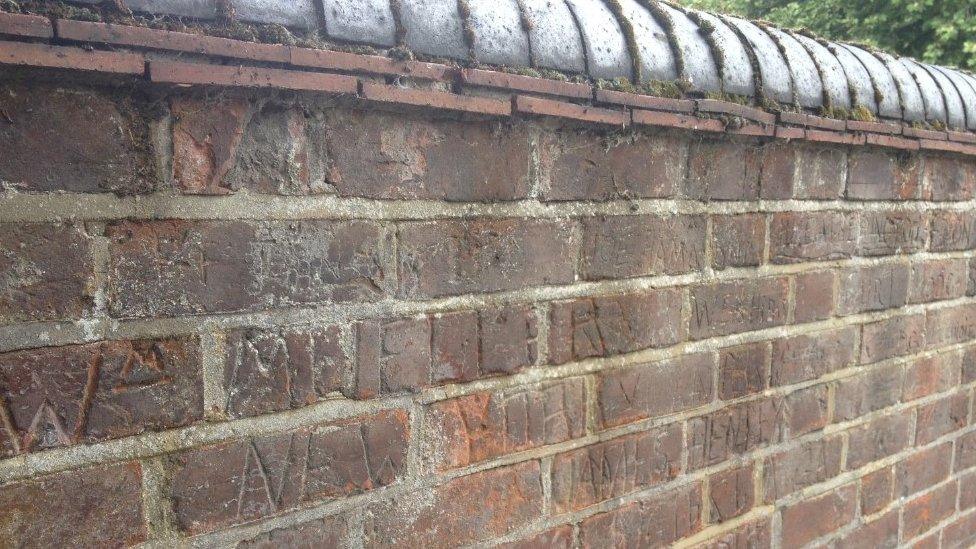WW2 DUKW 'lorry that swims' restored for D-Day anniversary
- Published
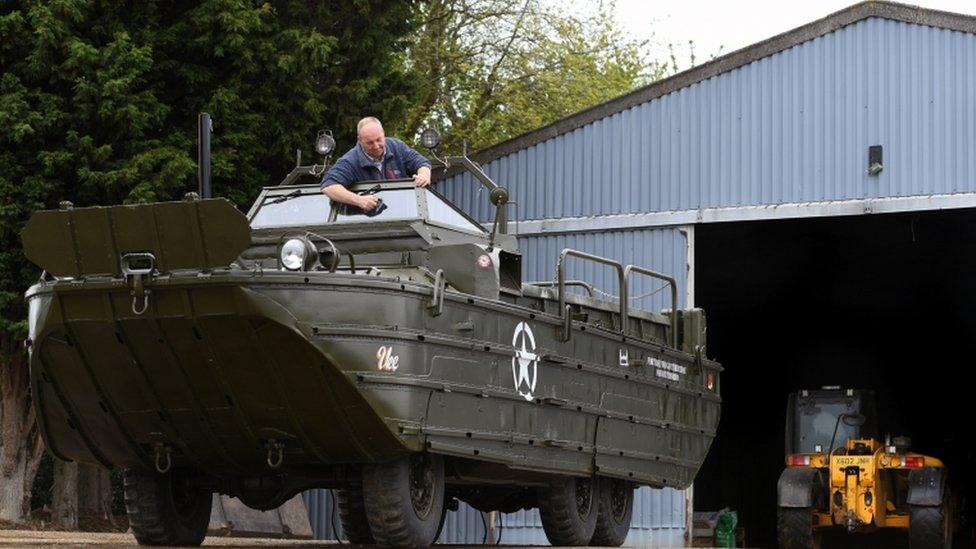
Graham Smitheringale and a team of volunteers restored the DUKW at his farm in Peterborough
A farmer and volunteers have restored a World War Two amphibious vehicle to mark the 75th anniversary of D-Day.
Graham Smitheringale described the six-wheeled DUKW as a "lorry that swims" and the "backbone of Normandy".
DUKWs, nicknamed "ducks", were used on D-Day and played a key role in transporting cargo from ship to shore.
Mr Smitheringale, from Peterborough, was inspired by memories of childhood holidays to Hunstanton, Norfolk, where refitted craft were used for tours.
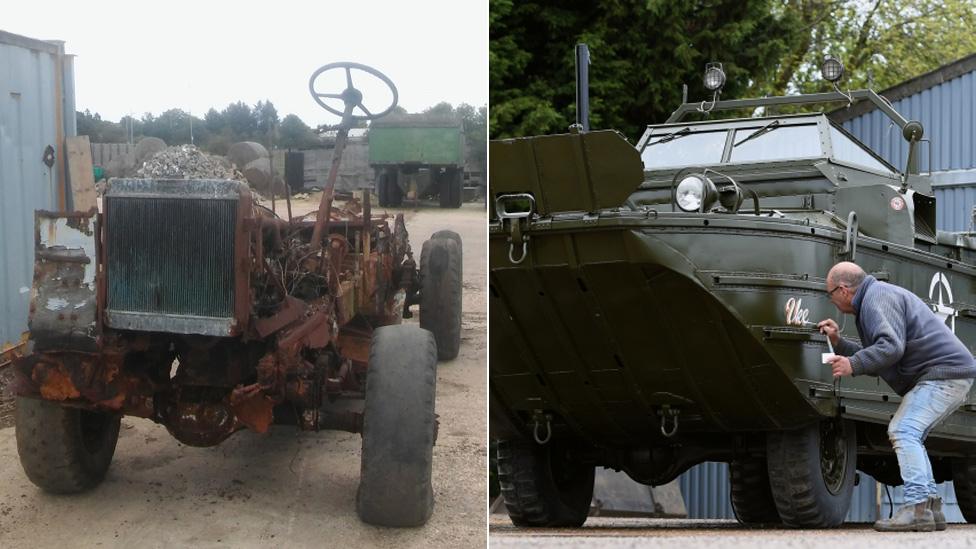
A rusty chasis was combined with another DUKW to create the restored vehicle
"I was just amazed that you can get a lorry that swims," the 51-year-old said.
"It's a six-wheel drive lorry with a hull round it and that's amazing. It was the backbone of Normandy."
He bought two "rusty wrecks" of DUKWs in 2017 and combined them to make one restored vehicle in under two years.
The project also used the help of volunteers, including a retired welder, a fitter and a painter.
Missing parts were sourced from around the world, including an original steering wheel from the United States.
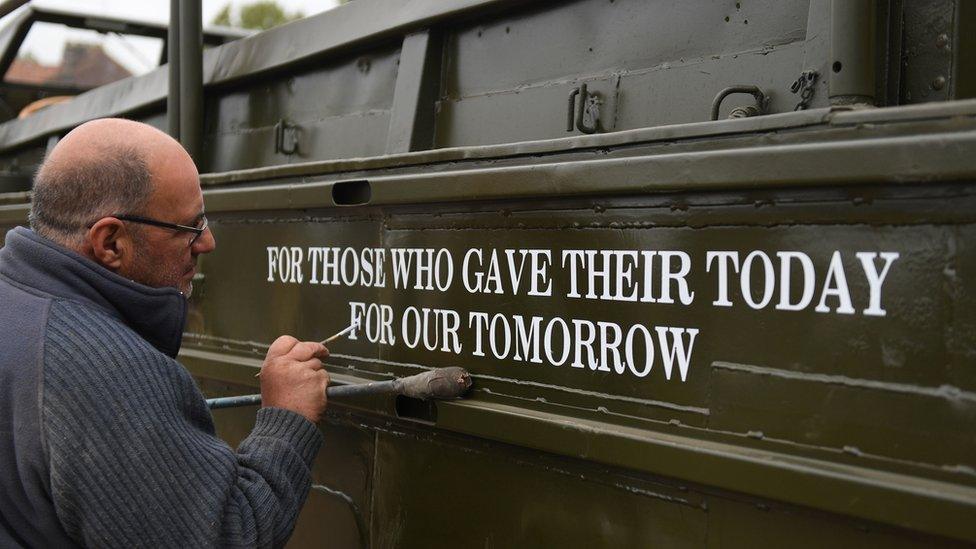
It is hoped the DUKW can be used to raise money for the Armed Forces
The project cost between £30,000 and £40,000 of his own and crowdfunded money, and he hopes to show the vehicle at next month's D-Day 75 commemorations at Portsmouth.
"I just think it's our heritage isn't it? And we need to [pay tribute]," he said. "They gave their today for our tomorrow."
David Cowcill, who has been researching the vehicle, said markings show it was built in 1944 but they have been unable to establish its service history.
"We took it to Thorney in June last year as a rusty wreck and people thought we were doolally, you know, these guys are on the weed," he said.
"Yet when they see it now everybody's reaction is just wow, unbelievable, and that then leads them to say 'can I support you?'"
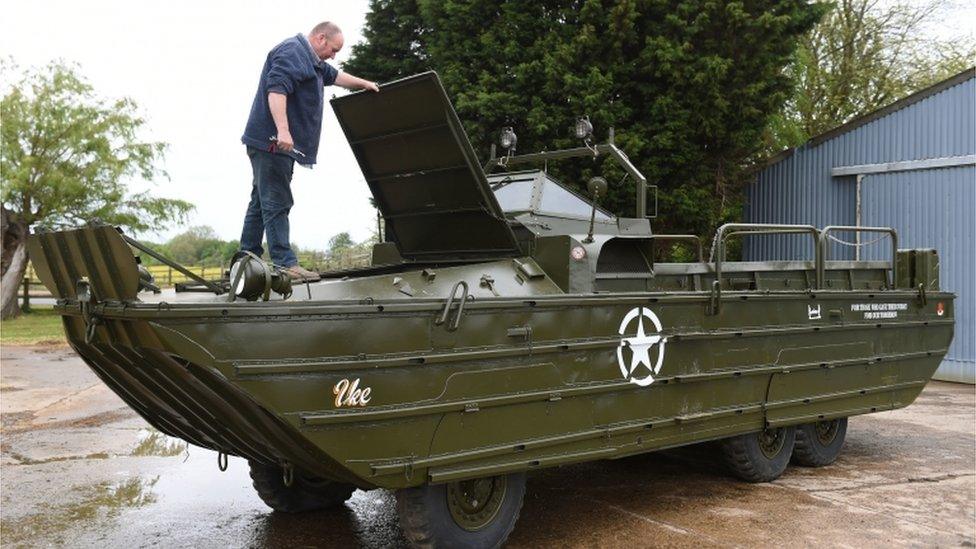
While not yet waterproof, the DUKW could be shown to D-Day veterans on land at Portsmouth for the 75th anniversary
More than 21,000 DUKWs were made in the US and their first use in World War Two was in the invasion of Sicily in July 1943.
DUKWs are 31ft (9.4m) long and 8ft (2.4m) wide, weigh more than six tonnes and can carry more than two tonnes.
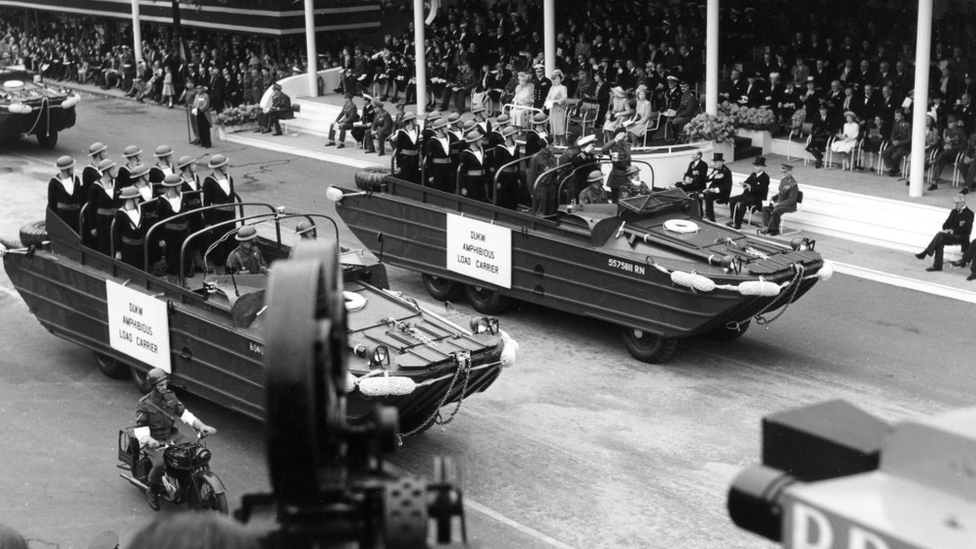
DUKWs of the Royal Navy passing King George VI, the Queen and Winston Churchill at the London Victory Celebrations in June 1946
- Published28 April 2019
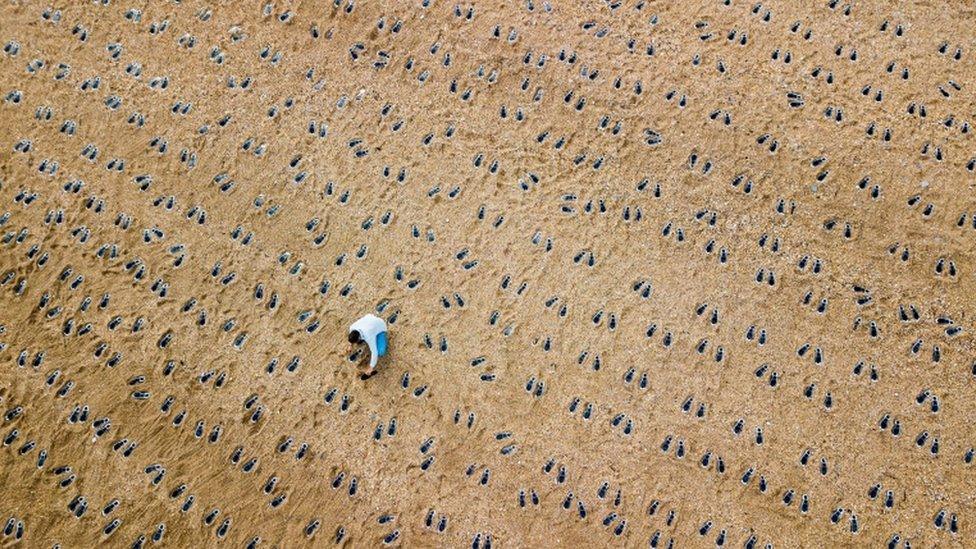
- Published23 April 2019
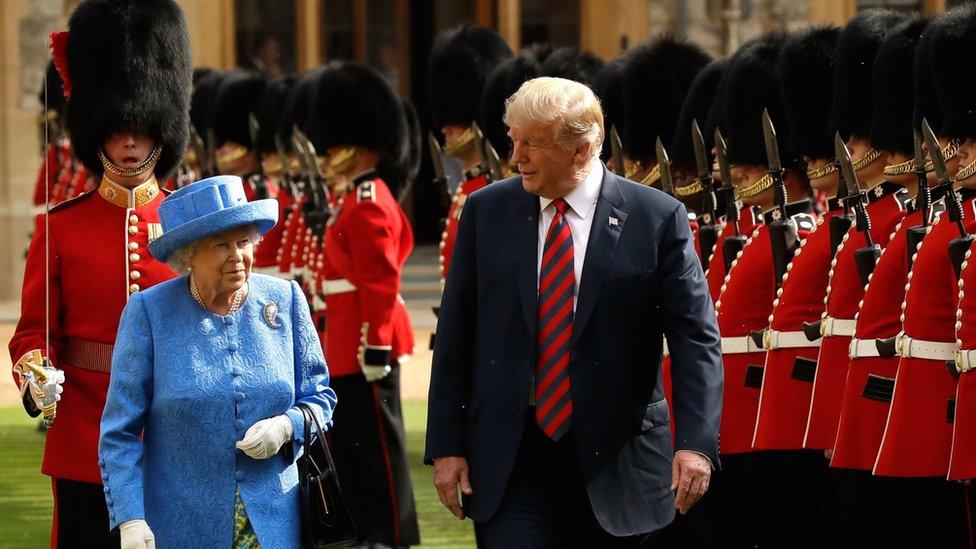
- Published9 April 2019
